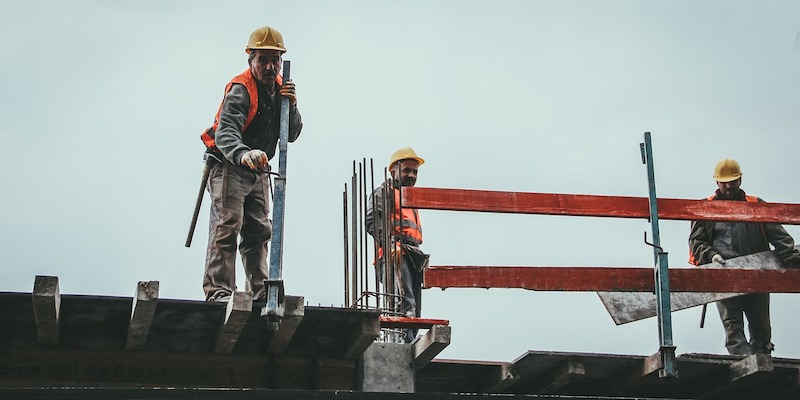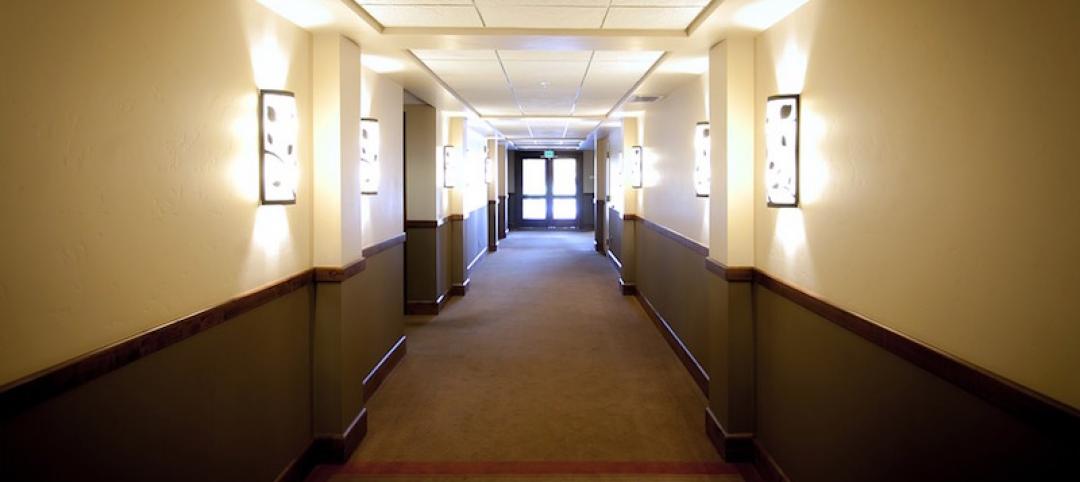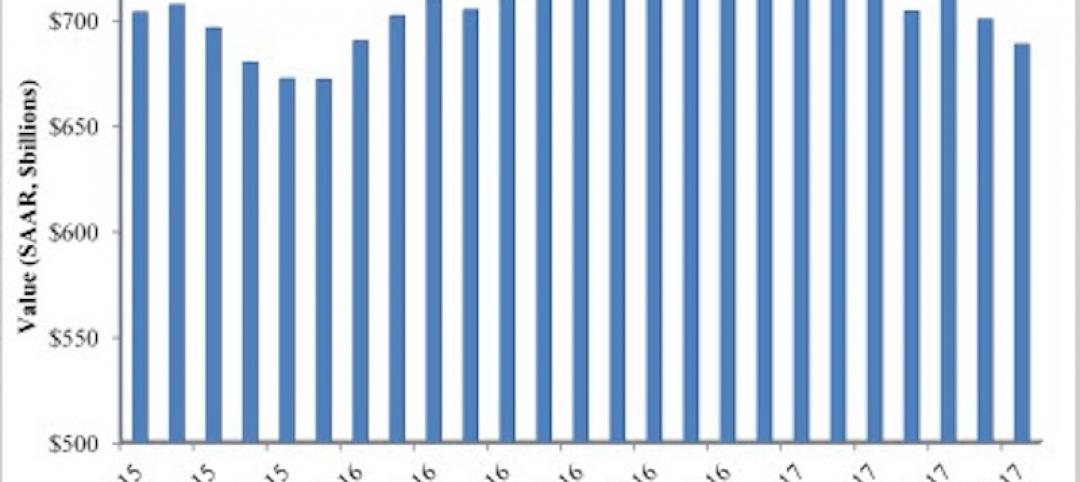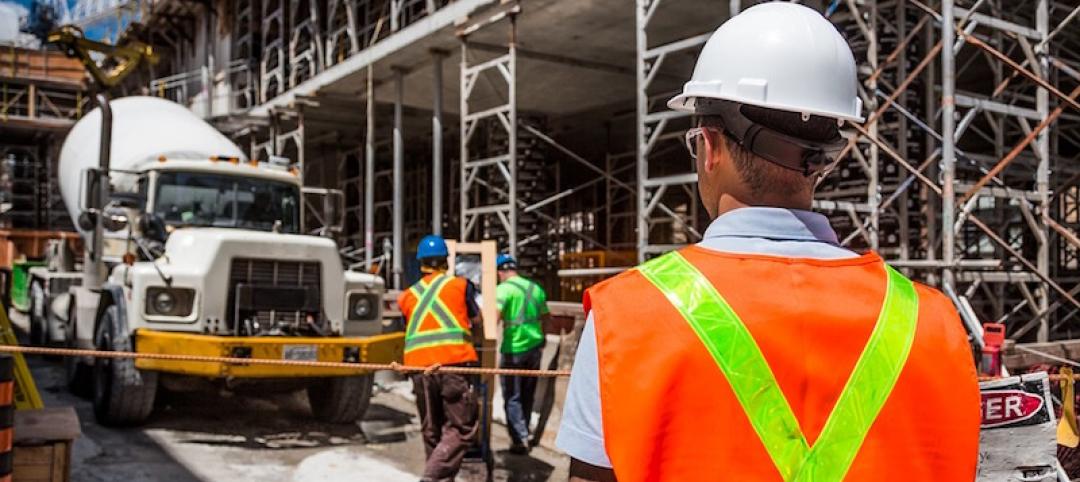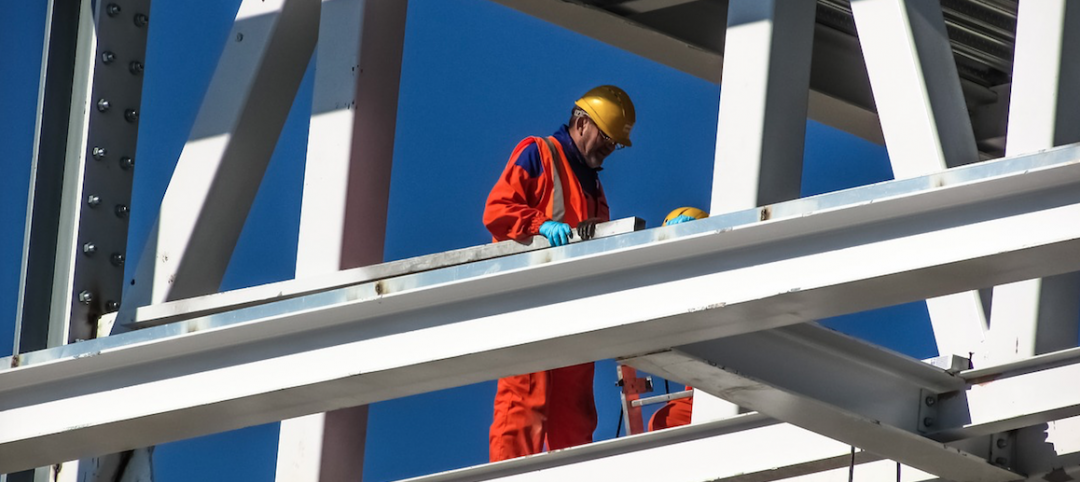Construction employment increased by 42,000 jobs in February and by 223,000 or 3.0% over the past 12 months, as the industry’s unemployment rate hit a new February low, according to an analysis of new government data by the Associated General Contractors of America. Association officials said some of the gains were attributable to mild winter weather in many parts of the country last month but added that the main reason for the gains was strong demand for construction services.
“Contractors are off to a fast start in 2020, adding 91,000 jobs in the first two months—the most in nearly two years,” said Ken Simonson, the association’s chief economist. “Although some of the gains probably reflect unusually mild winter weather in much of the nation, there is no question that contractors have been upbeat about the volume of work available.”
Total construction employment climbed to 7,646,800, the highest level since July 2007, with gains in both residential and nonresidential employment. The 3.0% growth in construction employment between February 2019 and February 2020 was nearly double the 1.6% increase in total nonfarm payroll employment. Average hourly earnings in construction – a measure of all wages and salaries – increased 3.0% over the year to $31.35. That figure was 9.9% higher than the private-sector average of $28.52¬.
Simonson observed that both the number of unemployed workers with recent construction experience – 531,000 – and the unemployment rate for such workers – 5.5% – were the lowest ever for February in the 21-year history of those series. He said these figures are consistent with reports from contractors as part of the association’s annual outlook that experienced construction workers are hard to find.
The employment data were collected in mid-February. Since then, the novel coronavirus has begun to affect some industries, but there have been no reports of construction sites being affected or of projects being deferred or canceled, the economist noted.
Association officials said that it is hard to estimate whether the spreading coronavirus will have a significant impact on future demand for construction or the sector’s employment levels. They said the best way for Washington officials to address the economic uncertainty was to act quickly to pass measures to rebuild the nation’s airports, waterways, highways and transit systems. They added that the association was launching a new round of advertising via its Americans for Better Infrastructure Campaign to educate constituents and members of Congress on the economic benefits of investing in infrastructure.
“The industry clearly benefitted from strong demand in February, but it is unclear whether and how the coronavirus might impact construction employment,” said Stephen E. Sandherr, the association’s chief executive officer. “Passing new infrastructure measures will support needed fixes to our transportation network while adding a new level of stability in what are likely to be uncertain times.”
Related Stories
Hotel Facilities | Sep 6, 2017
Marriott has the largest construction pipeline of any franchise company in the U.S.
Marriott has the most rooms currently under construction with 482 Projects/67,434 Rooms.
Market Data | Sep 5, 2017
Nonresidential construction declines again, public and private sector down in July
Weakness in spending was widespread.
Market Data | Aug 29, 2017
Hidden opportunities emerge from construction industry challenges
JLL’s latest construction report shows stability ahead with tech and innovation leading the way.
Market Data | Aug 28, 2017
U.S. hotel construction pipeline is up 7% year-over-year
For the economy, the rate of growth may be low but it’s running on all cylinders.
Market Data | Aug 23, 2017
Architecture Billings Index growth moderates
“The July figures show the continuation of healthy trends in the construction sector of our economy,” said AIA Chief Economist, Kermit Baker.
Architects | Aug 21, 2017
AIA: Architectural salaries exceed gains in the broader economy
AIA’s latest compensation report finds average compensation for staff positions up 2.8% from early 2015.
Market Data | Aug 20, 2017
Some suburban office markets are holding their own against corporate exodus to cities
An analysis of mortgage-backed loans suggests that demand remains relatively steady.
Market Data | Aug 17, 2017
Marcum Commercial Construction Index reports second quarter spending increase in commercial and office construction
Spending in all 12 of the remaining nonresidential construction subsectors retreated on both an annualized and monthly basis.
Industry Research | Aug 11, 2017
NCARB releases latest data on architectural education, licensure, and diversity
On average, becoming an architect takes 12.5 years—from the time a student enrolls in school to the moment they receive a license.
Market Data | Aug 4, 2017
U.S. grand total construction starts growth projection revised slightly downward
ConstructConnect’s quarterly report shows courthouses and sports stadiums to end 2017 with a flourish.


